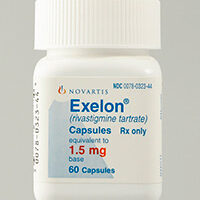Description
Drug Uses
Diamox is used for treatment of certain types of glaucoma in combination with other medicines. It is also used to treat or prevent symptoms of mountain sickness. It may also be used for other conditions as determined by your doctor.
How Taken
Use Diamox as directed by your doctor. To avoid stomach upset take Diamox with a meal. It is recommended to drink plenty of fluids while taking Diamox. Diamox should be swallowed whole. Do not break, crush or chew before swallowing. When you first start taking Diamox it may cause an increase in urine or in frequency of urination. To prevent this from affecting sleep, try not to take any dose later than 6 pm.
Warnings/Precautions
Before taking Diamox, tell your doctor or pharmacist if you have any medical conditions, especially if you have allergies to medicines, foods, or other substances, if you are allergic to any ingredient in Diamox, if you have kidney stones, a lung disease, glaucoma, diabetes, or difficulty breathing, if you have had a severe allergic reaction (eg, a severe rash, hives, breathing difficulties, or dizziness) to any other sulfonamide medicine such as acetazolamide, celecoxib, certain diuretics (eg, hydrochlorothiazide), glyburide, probenecid, sulfamethoxazole, valdecoxib, or zonisamide, if you are pregnant, planning to become pregnant or are breast–feeding. If you become pregnant, discuss with your doctor the benefits and risks of using Diamox during pregnancy. Diamox is excreted in breast milk. Do not breast–feed while taking Diamox. Some medicines may interact with Diamox. Therefore tell your doctor of all prescription or nonprescription medicine, herbal preparation, or dietary supplement that you are taking. Do not take Diamox if you have adrenal gland problems, low blood levels of potassium or sodium, kidney problems, liver problems (eg, cirrhosis), high blood levels of chloride, or other electrolyte problems. Diamox may cause increased sensitivity to the sun. Avoid exposure to the sun, sunlamps, or tanning booths until you know how you react to Diamox. Use a sunscreen or protective clothing if you must be outside for a prolonged period. Before you have any medical or dental treatments, emergency care, or surgery, tell the doctor or dentist that you are using Diamox. Diamox may affect your blood sugar. If you are a diabetic, check blood sugar levels closely and ask your doctor before adjusting the dose of your diabetes medicine. Diamox may interfere with certain lab tests. Make sure your doctor and laboratory personnel know you are taking Diamox. Elderly patients may be more sensitive to the effects of Diamox. Use Diamox with extreme caution in children younger than 12 years of age. Safety and effectiveness have not been confirmed.
Missed Dose
If you miss a dose take it as soon as you remember. However if it is almost time for the next dose, skip the Missed Dose and continue your regular dosing schedule. Do not take a double dose to make up for a missed one.
Possible Side Effects
Some of the Possible Side Effects are– Blurred vision, changes in taste, constipation, diarrhea, drowsiness, frequent urination, loss of appetite, nausea, vomiting. Contact your doctor if any of these or other side effects occur. If you experience any of the following serious side effects, you should seek medical attention immediately– allergic reactions (rash, hives, difficulty breathing, tightness in the chest, swelling of the mouth, face, lips, or tongue), blood in urine, changes in hearing, convulsions, dark, bloody stools, dark urine, fast breathing, fever, lack of energy, lower back pain, red, swollen, or blistered skin, ringing in the ears, sore throat, tingling of the arms or legs, unusual bleeding or bruising, vision changes, yellowing of the skin or eyes.
Storage
Store Diamox at 59 – 86 °F (15 – 30 °C). Store away from heat, moisture, and light. Do not store in the bathroom. Keep Diamox out of the reach of children.
Overdose
If overdose is suspected seek medical attention immediately. Some of the symptoms of Diamox overdose are– abnormal skin sensations (eg, tingling, tickling, itching, burning), buzzing, ringing, or whistling in the ears, drowsiness, loss of appetite, loss of coordination, nausea, tremors, unsteady movements, vomiting.
More Information
Diamox may cause drowsiness or temporary vision changes. These effects may worsen if Diamox is taken with alcohol or certain other medications. Use Diamox with caution. Do not drive or perform other possibly unsafe tasks until you know how you react to this drug. If your symptoms do not improve or if they worsen, contact your doctor. Diamox should be used only by the patient for whom it has been prescribed. Do not take less or more or take it more often than prescribed by your doctor.
Disclaimer
This is only general information, it does not cover all directions, drug integrations or precautions. You should not rely on it for any purpose, it does not contain any specific instructions for a particular patient. We disclaim all responsibility for the accuracy and reliability of this information. We`re not responsible for any damage.




Reviews
There are no reviews yet.